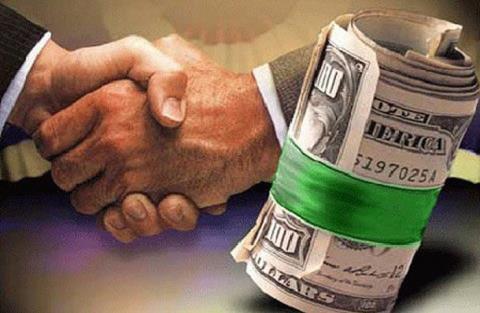The report on the implementation of the government’s Resolution No 02/2019 and Resolution No 35/2016 pointed out that the preferences to businesses decreased slightly from 77 percent in 2015 to 70 percent in 2018.

In the last four years of monitoring, the proportion was never lower than 70 percent.
According to Le Cao Doan from the Vietnam Economics Institute, it is very difficult to assess the scale and activities of ‘crony’ businesses. There is no official definition about ‘crony’ businesses, or ‘back-door’ businesses, and there is no official research work about the size of the group of businesses.
| The report on the implementation of the government’s Resolution No 02/2019 and Resolution No 35/2016 pointed out that the preferences to businesses decreased slightly from 77 percent in 2015 to 70 percent in 2018. |
By nature, ‘crony’ businesses are understood as the enterprises which live in the shadow of state-owned or private enterprises to hide relations and collude with state management agencies to obtain privileges that other businesses cannot obtain.
The activities of ‘crony’ businesses, like the ‘underground economy’, are carried out in the dark, so it is difficult to discover them.
However, Doan affirmed that ‘crony’ businesses exist, creating the discriminatory treatment among businesses.
This generates hindrances and distorts the market. They are dangerous because they do not encourage economic development based on the development of science and technology and good management, but on the basis of relations with management agencies.
The existence of these ‘crony’ businesses will result in the loss of resources, while cumulative value of the economy cannot be generated, because the benefits from ‘crony’ businesses won’t be transferred to the state budget, but fall into the pockets of interest groups.
Doan pointed out that the bigger the proportion of privileges for ‘crony’ businesses, the bigger negative impact they will have on the economy.
In developed economies, cronyism also exists, but it is considered illegal and like the behavior of evading tax, it is heavily punished.
Bui Ngoc Son from the Institute for the World Economics and Politics Research Institute commented that though there is no official definition about ‘crony’ businesses, everyone believes that this type of businesses is very popular in Vietnam.
“They are so popular that there is a saying that it is necessary to establish relations first before establishing businesses,” he said.
Many private enterprises in Vietnam develop thanks to the privileges they can enjoy in exploiting natural resources, such as forests, minerals and land. The legal loopholes and the mismanagement give the opportunities to these enterprises to get rich at a ‘lightening speed’.
The growth of the enterprises is based on relations with management agencies which grant them privileges, not on their real capability and creativity.
Linh Ha

Twelve SOEs report losses in 2019
The Ministry of Finance has revealed that twelve out of 136 wholly state-owned enterprises had posted losses of $31 million in the first half of last year, and six others faced warnings regarding financial security.

Building credit: How SOEs can get foreign financing for infrastructure
State-owned enterprises (SOEs) face unique challenges when it comes to attracting foreign financing for infrastructure projects. But there are solutions.
 A VCCI (Vietnam Chamber of Commerce and Industry) report released in late 2019 showed that the privileges to ‘crony’ businesses have decreased, but not enough to ensure equal competition among businesses.
A VCCI (Vietnam Chamber of Commerce and Industry) report released in late 2019 showed that the privileges to ‘crony’ businesses have decreased, but not enough to ensure equal competition among businesses.